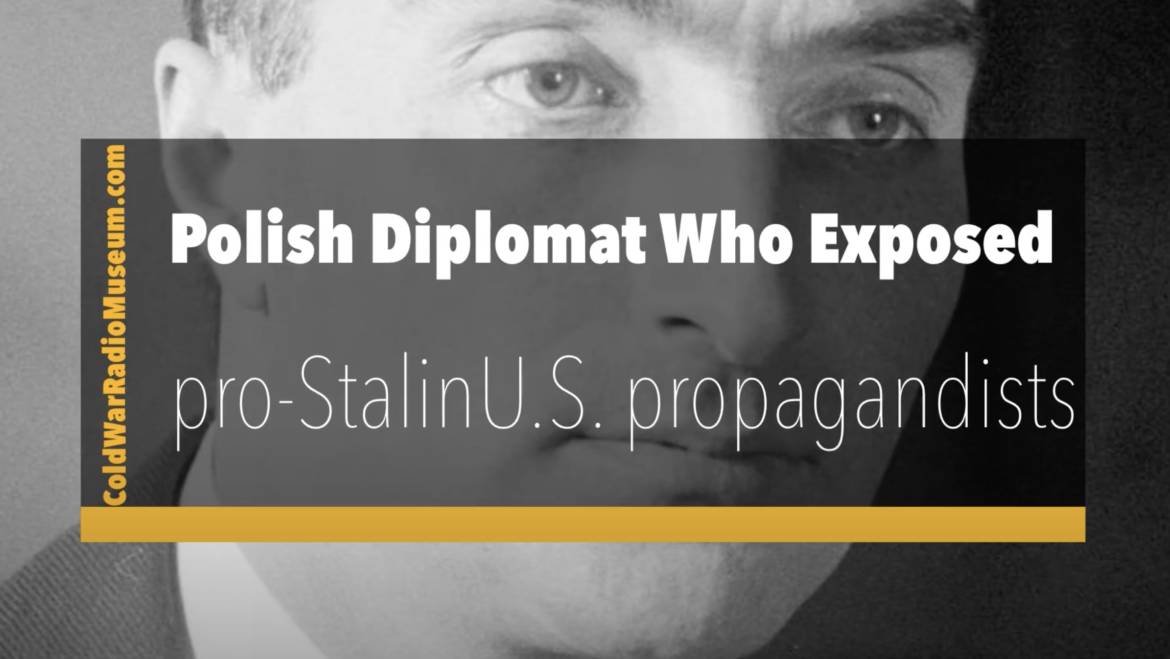Very few Americans know that during World War II, the U.S. government’s overseas broadcasts, which later became known as “the Voice of America” and “VOA,” were under the control of pro-Soviet government bureaucrats and strongly Left-leaning broadcasters in the Office of War Information (OWI) which was created in 1942 to counter Japanese and Nazi propaganda, but not Soviet propaganda. The Voice of America did not start broadcasting in Russian until 1947 because early OWI officials were afraid of offending Stalin. Their enthusiasm for the Soviet dictator and Moscow-controlled communist movements was so pronounced in VOA radio broadcasts and in other forms of wartime propaganda that it became intolerable at one point even to President Roosevelt. He himself was more than willing to appease the Soviet Union on his own in order to keep Russia in the war with Hitler, and he also naively believed that Stalin could be persuaded to support peace and democracy in the post-war world. But Roosevelt drew the line when the lives of American soldiers were at immediate risk because of Voice of America commentaries reflecting the Kremlin’s point of view and supporting communist causes.
According to General Dwight D. Eisenhower, the World War II Supreme Commander, communist-inspired excesses of by early VOA broadcasters threatened the safety of U.S. troops when Voice of America programs ridiculed tactical agreements reached by him with some of the Vichy France and Italian leaders to lure them out of their former cooperation with Nazi Germany. President Eisenhower noted in his memoir published in 1965 that President Roosevelt put a stop to VOA’s “insubordination.” 1 Of all the post-war U.S. presidents he was least enthusiastic about the Voice of America and was involved in the creation of more hard-hitting Radio Free Europe and Radio Liberty.
Even after President Roosevelt’s brief intervention and the forced resignation in 1943 of John Houseman, who was later described as the first Voice of America director, pro-Soviet and pro-communist propaganda in wartime VOA broadcasts continued for the rest of the war with regard to Poland and other countries in East Central Europe. President Roosevelt had agreed secretly that they should fall under Russia’s influence in response to Stalin’s aggressive demands at their wartime summit conferences in Tehran and Yalta.
Jan Ciechanowski, who from 1941 until July 5, 1945 served in Washington as the Ambassador of the Polish Government-in-Exile based in London, wrote in his 1947 book Defeat in Victory about his struggles with pro-Soviet propagandists in the Roosevelt administration. During the war, Ciechanowski tried to warn administration officials, members of Congress, and journalists about Soviet influence within the Office of War Information, including the Voice of America radio broadcasting section. He and other critics of the Office of War Information succeeded in persuading enough members of Congress to limit OWI’s funding for domestic propaganda in the United States. OWI’s budget for overseas broadcasts was saved only by a few votes. Republicans in Congress were particularly upset by what they saw as OWI’s and VOA’s partisan electoral messages designed to benefit President Roosevelt. Even the State Department secretly intervened with the White House to get some of the most pro-Soviet Voice of America officials and broadcasters removed, including VOA Director John Houseman who later became a successful Hollywood actor.
Ambassador Ciechanowski’s efforts were, however, ultimately unsuccessful in changing President Roosevelt’s general policy toward Russia. Only several years after the war, his warnings about Russian propaganda were publicized in bipartisan hearings conducted by the U.S. House of Representatives which prompted programming reforms at the Voice of America. Along with Radio Free Europe, VOA played a significant role later in the Cold War in helping to undermine the communist monopoly on news and contributed to the eventual peaceful collapse of the Soviet empire.



Add Comment